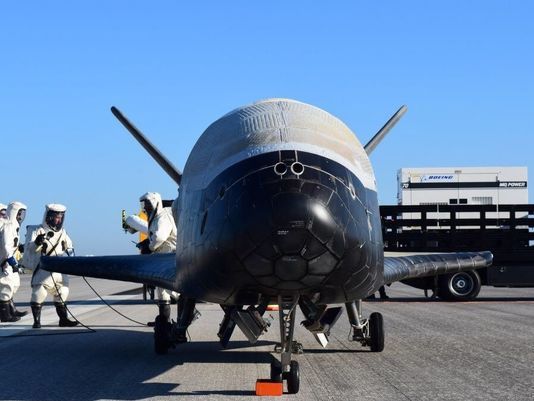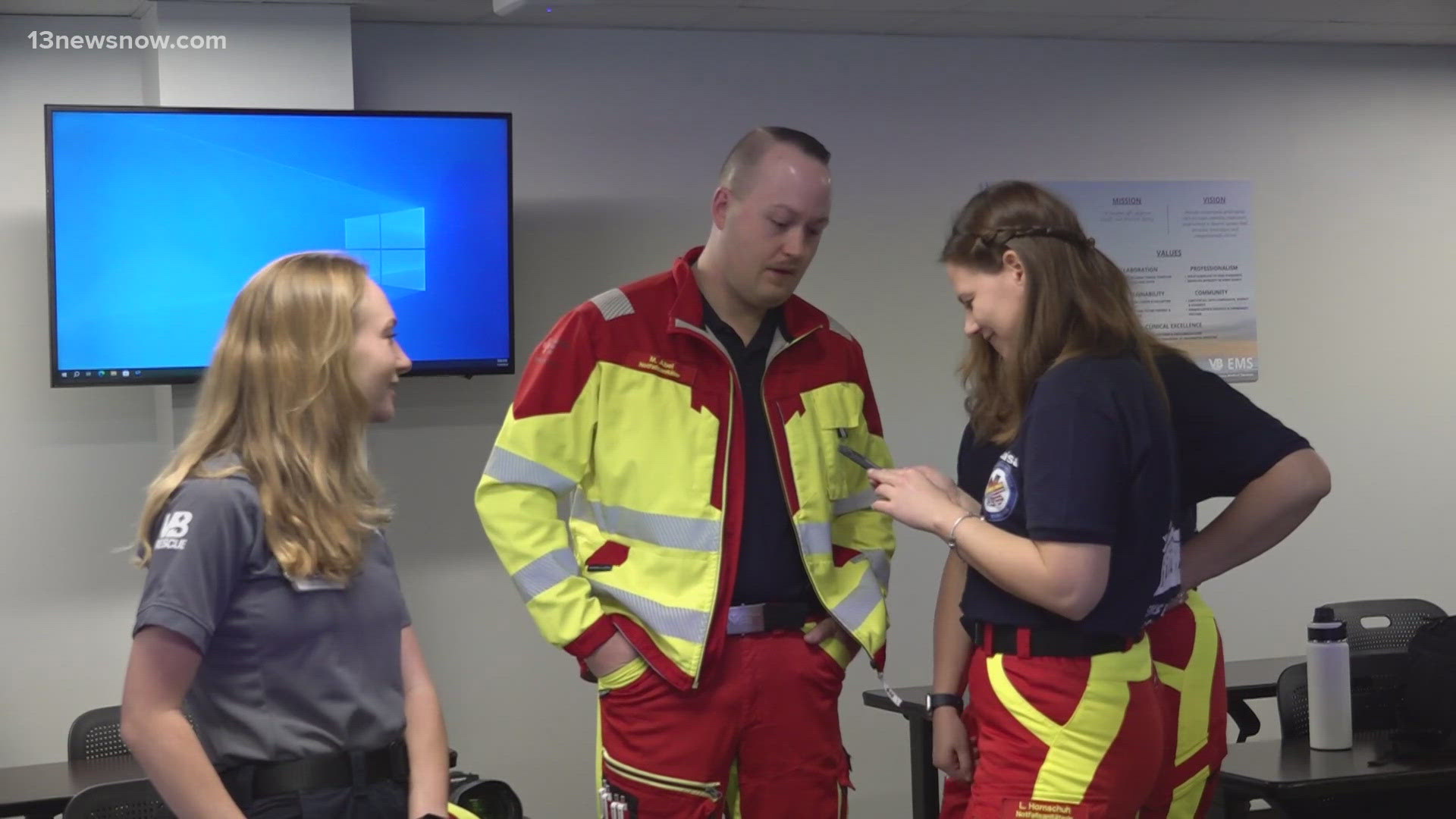CAPE CANAVERAL, Fla. (USA TODAY) — Sonic booms awakened some Space Coast residents Sunday morning as an unmanned military space plane made its first touchdown at Kennedy Space Center, completing a nearly two-year, mostly classified mission.
The Air Force shortly after 8 a.m. reported that the experimental X-37B Orbital Test Vehicle had landed safely on NASA's former space shuttle runway. The exact time was not confirmed.
Video posted by the Air Force from a runway camera showed the winged craft whiz overhead, touch down on wheels on the runway's north end and race down the three-mile, concrete strip before rolling to a stop in daylight.
Crews wearing protective suits for hazardous operations met the mini-shuttle that measures about 29 feet long — about a quarter the length of NASA's shuttle orbiters — with a nearly 15-foot wingspan.
The fourth X-37B mission, known as OTV-4, launched from Cape Canaveral Air Force Station atop a United Launch Alliance Atlas V rocket on May 20, 2015, for a total mission duration of 718 days — the most yet by about six weeks.
"The landing of OTV-4 marks another success for the X-37B program and the nation," said Lt. Col. Ron Fehlen, X-37B program manager, in a press release. "This mission once again set an on-orbit endurance record and marks the vehicle's first landing in the state of Florida. We are incredibly pleased with the performance of the space vehicle and are excited about the data gathered to support the scientific and space communities. We are extremely proud of the dedication and hard work by the entire team."
The landing was the first on KSC’s Shuttle Landing Facility by a spacecraft returning from orbit since Atlantis touched down nearly six years ago to conclude the final flight of NASA’s 30-year space shuttle program.
The much larger shuttle orbiters announced astronauts’ return home with twin sonic booms.
Before Sunday, it was not known how widely noticed the return of the autonomously flown X-37B would be, but residents in northern Brevard County and across Central Florida reported hearing booms on social media.
The Air Force’s two reusable mini-shuttles have now each completed two missions in low Earth orbit, for a total of 2,085 days. The first mission launched in 2010 and flew for about 224 days.
Three previous landings occurred at Vandenberg Air Force Base in California.
But the program managed by the Air Force Rapid Capabilities Office and operated by Boeing has since consolidated operations at two of KSC's former shuttle hangars, enabling the mini-shuttles to launch and land in the same place.
High bay doors on one hangar identify the site as the “Home of the X-37B.”
"Our team has been preparing for this event for several years, and I am extremely proud to see our hard work and dedication culminate in today's safe and successful landing of the X-37B," said Brig. Gen. Wayne Monteith, commander of the Air Force's 45th Space Wing.
Details about the purpose of the space planes, which house smaller versions of shuttle payload bays, are mostly kept secret.
The Air Force says the vehicles are advancing reusable spacecraft technologies, allowing systems to be tested in space and then inspected back on the ground before being deployed on operational missions.
For example, the just-landed mission was known to have included tests of an upgraded electric thruster used by high-value national security satellites, and a NASA materials science experiment.
The Secure World Foundation has shot down speculation that the X-37B could be used to attack targets on the ground, saying that scenario has “near zero feasibility."
Instead, the foundation says, the platform “is likely to be used for flight testing new reusable space launch vehicle technologies (such as guidance and thermal protection) and on-orbit testing of new sensor technologies and satellite hardware primarily for space-based remote sensing.”
The Air Force says the fifth X-37B mission, OTV-5, is scheduled to launch later this year from Cape Canaveral.
Follow James Dean on Twitter: @flatoday_jdean


